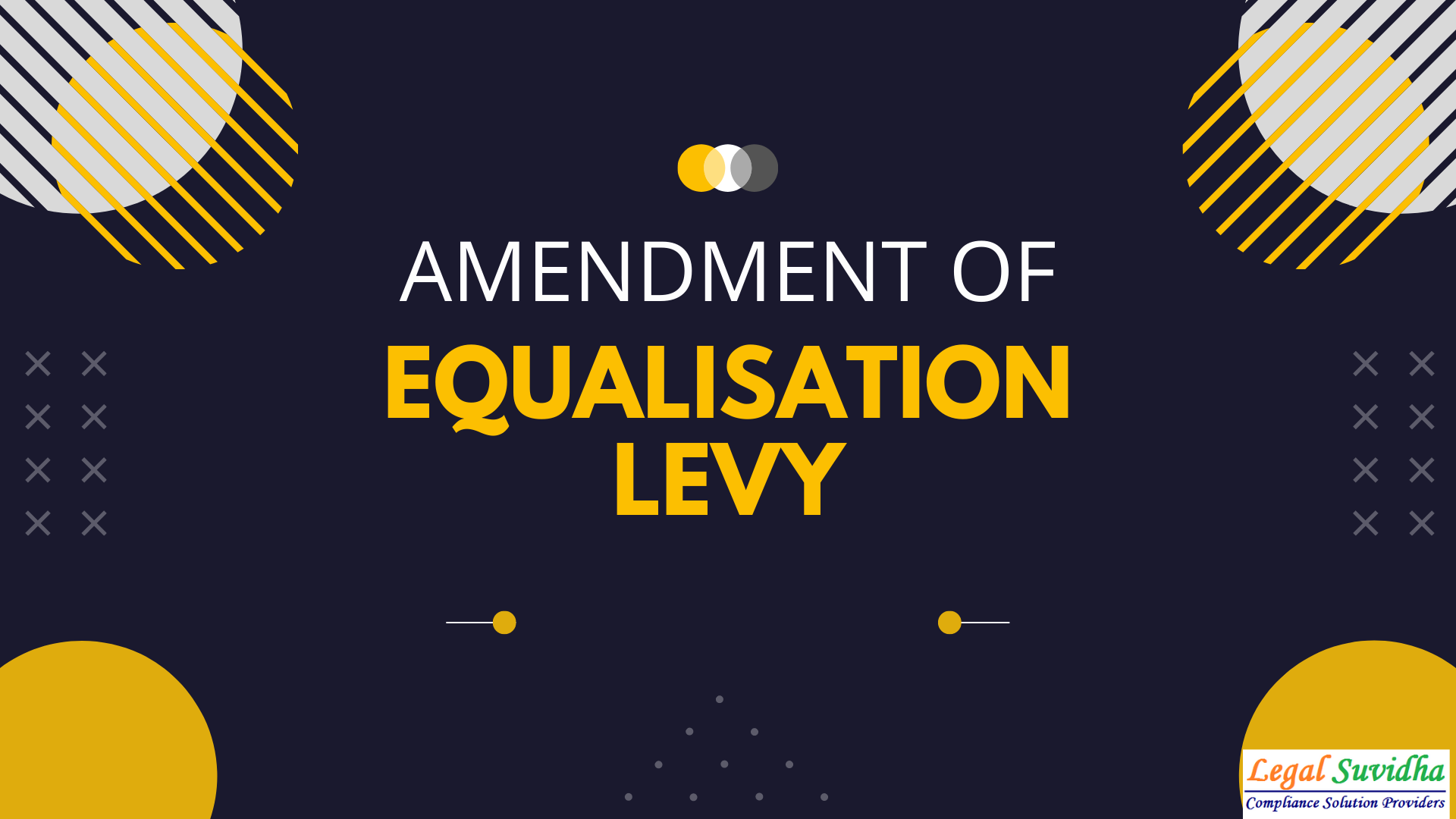RECENT AMENDMENT IN EQUALISATION LEVY
INTRODUCTION:
Equalisation Levy was introduced in India in 2016, with the intention of taxation the digital transactions i.e. the income accruing to foreign e-commerce companies from India. It is aimed at taxing business to business transactions.
Over the past few years, Information Technology has gone through an exponential expansion phase in India globally. This has led to an increase in the supply and procurement of digital services.
Consequently, this has given rise to various new business models, where there is a heavy reliance on digital and telecommunication networks.
As a result, the new business models have come with a set of new tax challenges in terms of nexus, characterization, and valuation of data and user contribution.
RECENT AMENDMENTS
One such measure is the amendment to the Finance Act, 2020, which expanded the scope of the Equalisation Levy (EL). There was no sign of this levy in the Union Budget 2020-21 unveiled in February 2020, and this came as a shock to the e-commerce companies like Google, Amazon, and Facebook. Further, this amendment was passed without any debate in both the Houses of Parliament. This article deals with the critical analysis of the new amendment and examines the hurdles faced by e-commerce companies.
The most recent amendments to the EL provisions represent a critical increment in the extent of the levy as it stretches out to non-resident e-commerce operators on e-commerce supply or services made or provided or facilitated by it, effective from April 1, 2020. Section 165A has been introduced so as to create the charge of EQL on e-commerce supply or services.
According to this section, EL at the rate of two percent shall be chargeable on the amount of consideration received or receivable by an e-commerce operator from e-commerce supply or services made or provided or facilitated by it to—
- a person resident in India; or
- a non-resident in the specified circumstances as referred to in subsection (3); or
- a person who buys such goods or services or both using an internet protocol address located in India.
- According to sub-section (2) of Section 165A, EL is not applicable to the following cases-
where e-commerce companies covered under section 165 are charged at 6% on “specified services,” or e-commerce operators having a Permanent Establishment (PE) in India and e-commerce supply/services are effectively connected with such PE in India; or
where the EL is leviable on an online advertisement and related activities and the levy is already 6 percent; or where sales/turnover/gross receipts of the e-commerce operator from the e-commerce supply or services made or provided or facilitated as referred to in subsection (1) is less than INR 20 million in the previous FY(Financial Year).
For the above-said purposes, an “e-commerce operator” is defined as a non-resident that owns, operates, or manages a digital or electronic facility or platform for the online sale of goods or the online provision of services, or both.
The “e-commerce supply or services” on which the levy applies are:
- Online sale of goods owned by the e-commerce operator; or
- Online provision of services provided by the e-commerce operator; or
- Online sale of goods or provision of goods facilitated by the e-commerce operator; or
- Any combination of the above.







